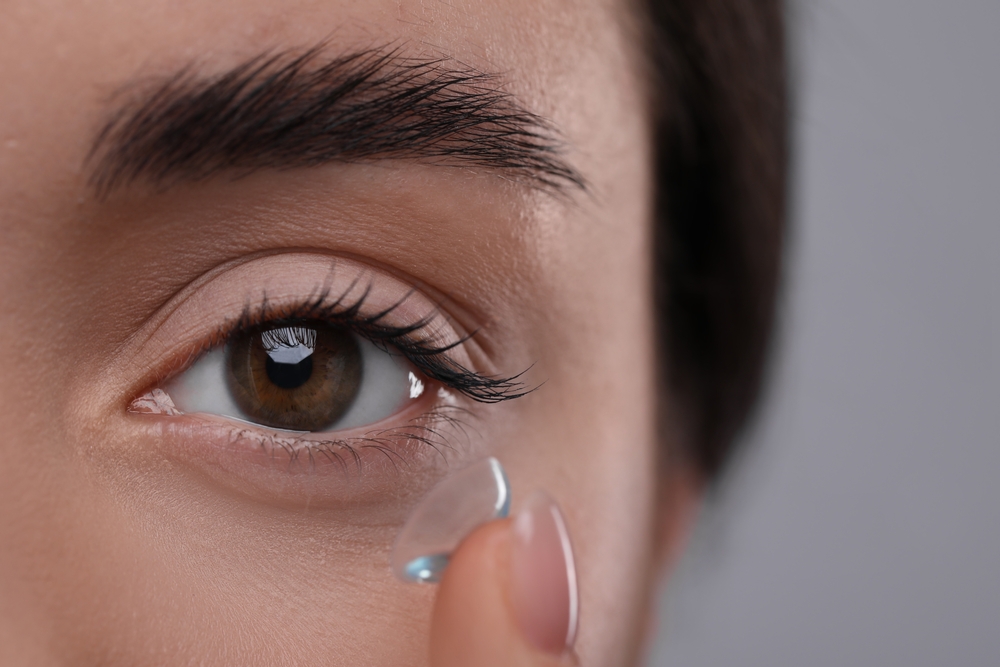Beyond Soft Lenses: Types of Specialty Contacts and How They Work
Blog:Beyond Soft Lenses: Types of Specialty Contacts and How They Work

Beyond Soft Lenses: Types of Specialty Contacts and How They Work
When most people think of contact lenses, they imagine the soft, flexible lenses that correct nearsightedness, farsightedness, or astigmatism. While soft lenses are a great solution for many, they aren’t the only option - nor are they always the best for certain vision conditions. Specialty contact lenses are designed for people who need more advanced correction or comfort than soft lenses can provide.
What Are Specialty Contact Lenses?
Specialty contact lenses are advanced, custom-designed lenses made for people whose vision or eye health needs cannot be fully addressed by standard soft lenses. Unlike regular contacts, specialty lenses are crafted to accommodate unique eye shapes, complex prescriptions, or certain medical conditions such as keratoconus, severe dry eye, or corneal scarring. By tailoring the lens type and fit to the individual, specialty contact lenses can often provide better results and enhanced quality of life for those with challenging vision needs. Here’s a look at some of the most common types of specialty contacts and how they work.
Rigid Gas Permeable (RGP) Lenses
Rigid gas permeable lenses, also called GP or RGP lenses, are made from a firm, oxygen-permeable material. Unlike soft lenses, RGPs maintain their shape on the eye, offering crisp vision for those with astigmatism or irregular corneas. These lenses are often recommended for people who need sharper vision than what soft lenses can provide. They are also more durable and resistant to deposit buildup, making them a cost-effective option in the long run.
Scleral Lenses
Scleral lenses are large-diameter gas permeable lenses that rest on the sclera (the white part of the eye) rather than the cornea. Because they vault over the cornea and create a reservoir of fluid, scleral lenses are ideal for individuals with irregular corneas, severe dry eye, or conditions like keratoconus. The fluid layer provides added comfort and stable vision throughout the day.
Hybrid Lenses
Hybrid contact lenses combine the crisp optics of a gas permeable center with the comfort of a soft lens skirt. This design offers the best of both worlds: sharp vision for those with astigmatism or corneal irregularities, and a comfortable, secure fit similar to soft lenses. Hybrid lenses are a popular option for people who have struggled with comfort or stability in traditional gas permeable lenses.
Custom Soft Lenses
While most soft contact lenses are mass-produced in standard sizes and prescriptions, custom soft lenses are specially designed for unique eye shapes and prescriptions outside the usual range. Customization allows for a more precise fit, improved comfort, and better vision for people with high prescriptions, unusual corneal shapes, or other complex needs.
Ready to See the Difference?
Specialty contact lenses offer hope and improved quality of life for people whose needs go beyond what standard soft lenses can deliver. Whether you’re dealing with an irregular cornea, severe dry eye, high prescription, or other complex vision issues, there’s likely a specialty contact lens designed to help you see and feel your best.
If you’ve struggled with soft lenses or have unique vision needs, schedule a contact lens exam at Texas State Optical Farmers Branch and discover which specialty lenses may be right for you. Visit our office in Farmers Branch, Texas, or call (972) 991-2020 to book an appointment today.


